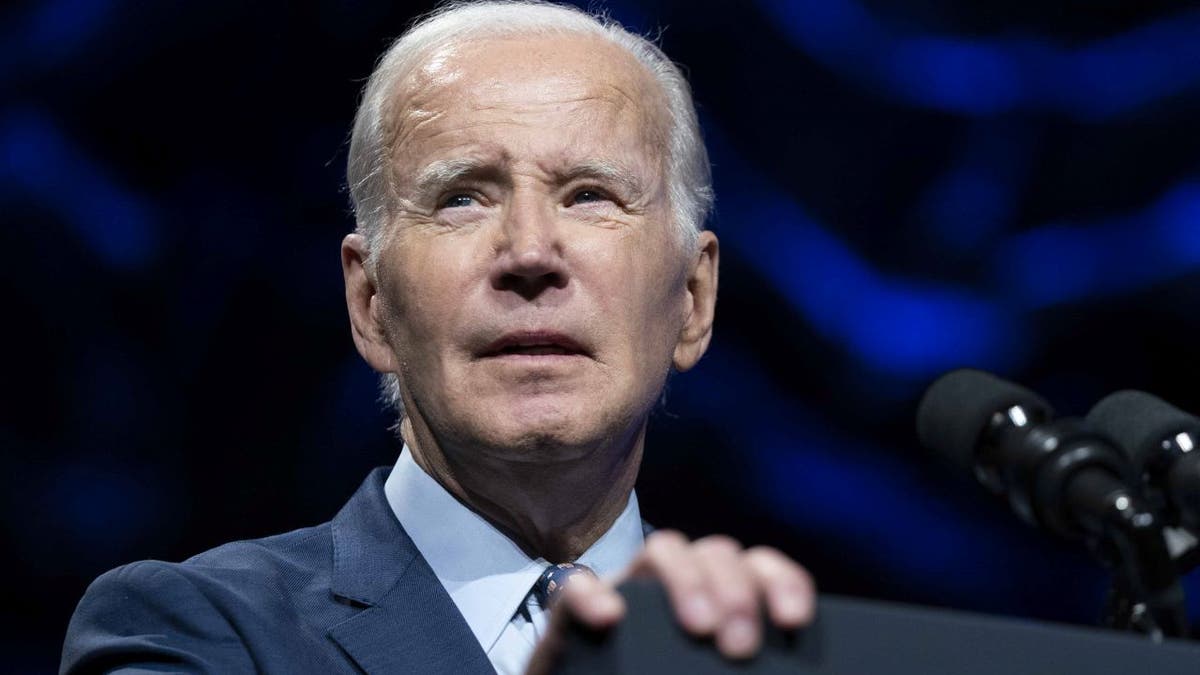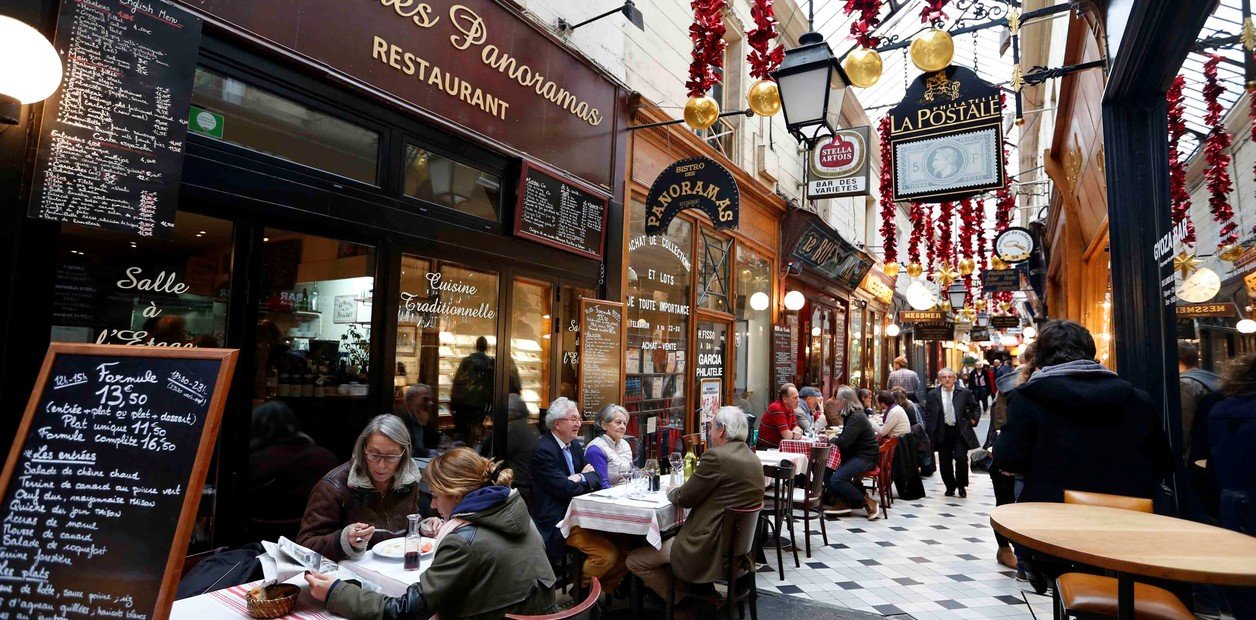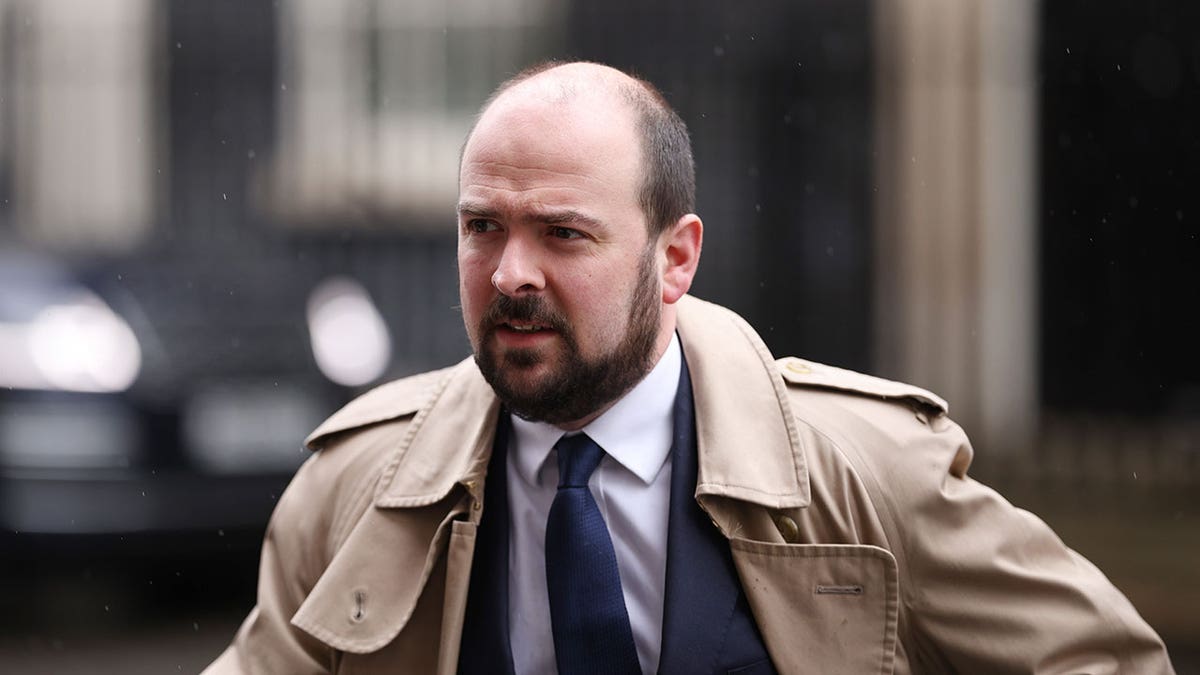INTERNACIONAL
Energy groups celebrate Trump’s latest move to unleash Alaska drilling

NEWYou can now listen to Fox News articles!
Conservative energy leaders are celebrating President Donald Trump’s latest effort to unleash American drilling.
The Department of the Interior announced a proposal Monday to rescind President Joe Biden’s restrictions on oil and gas development in the National Petroleum Reserve in Alaska.
Interior Secretary Doug Burgum said a Biden-era 2024 Bureau of Land Management (BLM) rule that restricted energy development for more than half of the 23 million acres on Alaska’s North Slope ignored the Naval Petroleum Reserves Production Act of 1976.
«The National Petroleum Reserve (NPR), created by Congress over a century ago to secure America’s energy supply, supports responsible oil development on 13 million acres,» Frank Lasee, president of Truth in Energy and Climate, said in a statement shared with Fox News Digital.
TRUMP ADMINISTRATION TO OPEN 13 MILLION ALASKA ACRES TO MINING, DRILLING
Unleashing American energy was one of President Donald Trump’s key campaign promises on the 2024 presidential campaign trail. (Getty Images/AP)
«President Biden’s drilling ban in Alaska undermined energy security, increasing reliance on foreign oil, raising gasoline prices and fueling inflation through higher transportation costs,» Lasee added. «Resuming drilling puts economic growth and energy independence ahead of climate ideology in a place almost no regular American will ever visit.»
TRUMP ENERGY DEPARTMENT CANCELS $3.7 BILLION IN BIDEN-ERA GREEN ENERGY GRANTS
Consistent with Trump’s executive orders, the proposed revision reverts to regulations that were in place prior to May 7, 2024, which Lasee called a «commendable» prioritization of «American energy needs and economic well-being while adhering to the law.»
«President Biden never should have halted congressionally sanctioned oil drilling in Alaska,» said Sterling Burnett, director of the Arthur B. Robinson Center on Climate and Environmental Policy at the Heartland Institute. «Trump is to be applauded, both for putting Americans’ energy needs and our economic well-being first and for following the law by opening these areas back up for production.»
According to the Department of Interior, the 2024 rule provisions lacked «a basis in the Naval Petroleum Reserves Production Act» and undermined the BLM’s congressional obligation to oversee timely leasing in the region.

A part of the Trans Alaska Pipeline Sept. 17, 2019, in Fairbanks, Alaska. (Getty Images)
«President Trump’s move to restore drilling in Alaska’s Arctic region is a bold and necessary step toward reclaiming American energy independence,» Jason Isaac, CEO of the American Energy Institute, said.
Trump vowed to unleash American energy on the campaign trail in 2024 and signed executive orders on the first day of his second term to rescind Biden-era climate policies.
«By reversing Biden’s disastrous restrictions on 13 million acres, Trump is unleashing the abundant resources that power our economy, lower energy costs and strengthen national security. This is a victory for American workers, consumers and allies who rely on stable, affordable energy,» Isaac added.
Steve Milloy, senior policy fellow at the Energy & Environment Legal Institute, called the announcement «more good news from the Trump administration in rolling back more of Biden’s war on fossil fuels.»

President Joe Biden’s administration added regulations to 13 million acres on Alaska’s North Slope. (Bonnie Cash/UPI/Bloomberg via Getty Images)
«Promises made. Promises kept. But the Trump administration will need to go further to give investors confidence that the Alaska leases will actually be viable. Radical climate activists will resort to the courts and scare off investors. There likely needs to be a legislative solution to that,» Milloy added.
Trump and his Republican allies are seeking to roll back some of Biden’s green energy initiatives through budget reconciliation on Trump’s «big, beautiful bill.»
«The National Petroleum Reserve (NPR) was created more than 100 years ago specifically to provide a supply of oil for America’s energy security. That energy security can be achieved by responsibly developing our oil reserves, including in the Gulf of America, our vast shale oil deposits in America’s heartland and, now, thankfully, the 13 million acres of the NPR that are going to be developed,» said Gregory Whitestone, CO2 Coalition executive director.
CLICK HERE TO GET THE FOX NEWS APP
«Continuation of the Biden administration’s drilling ban would have resulted in a greater reliance on foreign supplies of oil (and) increases in gasoline prices and the inflationary spiral across all sectors of the American economy from increased transportation costs,» Whitestone added.
INTERNACIONAL
Portland set to see Trump crime crackdown reckoning after 2020’s humiliating violence spree

Anti-ICE protesters clash with federal agents in Portland
Fox News’ Jonathan Hunt reports the latest on anti-ICE riots in Portland. ‘Outnumbered’ co-host Kayleigh McEnany also joined ‘America’s Newsroom’ to discuss Oregon’s lawsuit against the Trump admin and an ex-ESPN host calling for civil discourse.
NEWYou can now listen to Fox News articles!
Portland, Oregon, is on track to face a Trump crime crackdown reckoning that’s more than five years in the making.
Portland was ravaged by violence in 2020 as liberal protesters, Black Lives Matter activists, Antifa anarchists and others converged on the deep blue stronghold following the death of George Floyd during an interaction with Minneapolis police on Memorial Day of that year.
The Trump administration deployed federal law enforcement to help quell the violence near federal property, but did not roll out crime crackdown initiatives on par with what the president is currently unveiling in cities such as Washington, D.C., this year.
Now, President Donald Trump has set his sights on the left-wing city to remove illegal immigrants and crack down on crime trends — five years after the city saw millions of dollars in damages and witnessed consecutive nights of rioting that began on Memorial Day and continued into September 2020.
TRUMP VOWS ‘FULL FORCE’ AS HE PLANS TO SEND TROOPS TO PORTLAND AMID ANTI-ICE PROTESTS
Police deploy tear gas and munitions to disperse protesters during a demonstration in Portland, Ore., Sept. 5, 2020. (AP)
«At the request of Secretary of Homeland Security, Kristi Noem, I am directing Secretary of War, Pete Hegseth, to provide all necessary Troops to protect War ravaged Portland, and any of our ICE Facilities under siege from attack by Antifa, and other domestic terrorists,» Trump posted to Truth Social on Saturday morning.
«I am also authorizing Full Force, if necessary. Thank you for your attention to this matter!» he added.
George Floyd’s death on Memorial Day in 2020 sparked nationwide protests and riots, but in Portland, unrest raged for more than 100 consecutive nights, with the city recording a staggering 144% increase in homicides between 2019 and 2021, and millions of dollars in damages to businesses and government buildings.
Trump was in office during the riots and protests of 2020, as his administration juggled the coronavirus pandemic — including state lockdowns and vaccine requirements for some workers — while Trump faced Joe Biden and the Democratic Party at the ballot box.
Trump railed against the violence that played out in The City of Roses, while the Department of Homeland Security launched the Protecting American Communities Task Force to protect federal monuments, memorials, and other buildings from violence and vandalism in the city and other crime-rattled cities like it.
OREGON SUES OVER TRUMP ADMIN’S ‘WAR-RAVAGED PORTLAND’ NATIONAL GUARD TROOP DEPLOYMENT
The task force was formed after rioters broke into the Multnomah County Justice Center at the end of May, igniting a fire inside and spray-painting the building. The justice center houses Portland police headquarters and a county jail, and sits next to the Mark O. Hatfield U.S. Courthouse.
The federal courthouse faced repeated vandalism, including rioters launching fireworks at the building, graffiting the exterior with anti-police slogans, and breaking its windows. The task force worked to protect the Hatfield building, as well as a handful of other federal buildings, from attacks, Fox News Digital previously reported.

Demonstrators shield from tear gas fired by federal officers during a protest at the Mark O. Hatfield U.S. Courthouse in Portland, Ore., July 24, 2020. (Marcio Jose Sanchez/AP Photo)
«These are anarchists. These are not protesters. People say protesters. These people are anarchists. These are people that hate our country. And we’re not going to let it go forward,» Trump said in July 2020, while claiming that violence-plagued cities needed «more federal law enforcement» and celebrating that the law enforcement deployed to Portland had «done a fantastic job.»
Trump railed against local Democratic leaders at the time for failing to end the violence when it first began, including slamming then-Mayor Ted Wheeler as «incompetent» and a «fool,» as well as messages against then-Gov. Kate Brown, while underscoring that federal law enforcement would clean the city up.
OREGON COUNTY LOST $1 BILLION IN 2020 AS RESIDENTS FLED CRIME, HOMELESSNESS: ‘IT’S LIKE PORTLAND DIED’

Federal officers fire crowd control munitions at protesters outside the Mark O. Hatfield U.S. Courthouse in Portland, Ore., July 21, 2020. (AP Photo/Noah Berger)
Federal law enforcement officials on the task force, however, were phased out of the city that summer, with local police replacing federal officers who worked to protect federal buildings beginning at the end of July.
Critics accused Trump of abusing power by deploying federal authorities to Portland. A coalition of Democratic mayors — including leaders from Washington, D.C., Portland and Chicago — urged Congress to block further deployments, arguing it threatened the First Amendment.
PORTLAND RIOTS CAUSED AT LEAST $2.3M IN DAMAGE TO FEDERAL BUILDINGS IN CITY, STATE’S US ATTORNEY SAYS
Protests and riots continued in the city in the fall months of 2020 — when the final leg of the federal election dominated headlines – and after federal officials left the city. Federal law enforcement officials had been phased out of the city by Aug. 31, according to a DHS Inspector General report published in 2021.

President Donald Trump speaks to reporters before departing the White House, Sept. 7, 2025. (AP Photo/Jose Luis Magana)
All told, the riots caused an estimated $2.3 million in damages to federal buildings in Portland alone, Fox News Digital previously reported, while Portland police reported spending at least $6.2 million to cover overtime and personnel costs for just roughly one month of the riots, and businesses in the downtown area lost tens of millions of dollars in revenue and damages due to the protests and riots, the police chief said at the time.
In the fallout, the police department’s staffing woes worsened as the city defunded its force and morale cratered; homicides hit an all-time high in November 2022 – recording 101 homicides that year – and shootings increased across the city, with Portland recording more than 1,000 shootings across the first 10 months of 2021.
AT LEAST 16 CITIES SEE RECORD HOMICIDES IN 2021
Trump has been on a crime crackdown blitz since his second inauguration, as agencies such as the Department of Homeland Security launched massive deportation efforts to remove the millions of illegal immigrants who flooded the nation under the Biden era, and Trump turned his attention to individual cities he believes are in need of assistance on law and order.
Trump federalized the Washington, D.C., police department on Aug. 11 and deployed the National Guard to patrol the city. Trump has celebrated the federalization of Washington, D.C.’s police force as a success, including notching zero homicides across a 13-day period in August, and arresting more than 2,000 suspects for crime stretching from illegal firearms charges to immigration arrests. He has also lauded Democratic D.C. Mayor Muriel Bowser for her assistance with the effort.

National Guard troops patrol Washington, D.C., after Trump ordered their deployment in August 2025. (AP Photo/Jose Luis Magana)
«We don’t have a crime problem in Washington anymore,» Trump told reporters earlier in September of the crackdown. «And the mayor has been very helpful.»
Two hundred National Guard members are expected to converge on Portland in the coming days. The campaign follows Chicago’s ongoing «Midway Blitz» crime crackdown to weed out illegal immigrants in the Windy City, and as Memphis, Tennessee, prepares to receive its own teams of federal law enforcement and National Guard members later this week to combat crime in the southern city.
Portland has seen ongoing issues with crime, including rampant drug use and homelessness, and has seen flaring protests over the summer — most notable near a Portland ICE facility — as the Trump administration carried out various immigration crackdowns across the country.
Anti-ICE graffiti was scrawled on the outside of the Portland ICE facility, while the demonstrations have become violent at times between protesters and federal agents, prompting authorities to use rubber bullets, tear gas and flash bangs to break up the crowds, Fox Digital reported earlier this month.
In August, protesters displayed a guillotine and fought with police before officers fired munitions to disperse the crowd.
CLICK HERE TO GET THE FOX NEWS APP
Oregon sued the Trump administration on Sunday in an attempt to prevent the deployment of 200 National Guard members to Portland. The National Guard members began arriving to the city over the weekend, Fox Digital previously reported.
Local leaders have slammed Trump’s order as «unlawful,» while arguing the city poses no threat to national security.
«Our city is a far cry from the war-ravaged community he has posted on social media,» Democratic Gov. Tina Kotek told reporters at a news conference on Sunday. Kotek added that she spoke directly with Trump.
«There is no insurrection, there is no threat to national security and there is no need for military troops in our major city,» she added.
Fox News Digital’s Cameron Arcand, Michael Dorgan and Michael Ruiz contributed to this report.
portland,antifa,crime,donald trump,politics,oregon
INTERNACIONAL
Emmanuel Macron sale al auxilio de los chefs de Francia: la gente ya no sale a comer y cierran decenas de restaurantes por mes

El poder de compra en crisis
Americanización y comidas rápidas
Macron al rescate
Cierran 25 restaurantes por día
Los aficionados dañan la cocina
INTERNACIONAL
NHS removes controversial report on ‘benefits’ of first-cousin marriage after fierce public backlash in UK

NEWYou can now listen to Fox News articles!
The United Kingdom’s National Health Service (NHS) has come under fire for potentially prioritizing cultural sensitivity over significant health concerns after it published a report last week questioning a major issue of public debate — should first-cousin marriages be banned?
Debate over the issue heightened earlier this year after U.K. Prime Minister Keir Starmer said he would not ban the practice outright, despite known risks to future generations, as children born from first cousins are at increased risk for diseases like sickle cell disease and cystic fibrosis.
Starmer, along with members of his Labour government, has argued that education should be prioritized instead of overreaching government mandates.
BRITISH PM CRITICIZED FOR BLOCKING BILL BANNING FIRST-COUSIN MARRIAGE AMID MOUNTING HEALTH CONCERNS
Prime Minister Sir Keir Starmer unveils Labour’s plan for the NHS during a visit to the Sir Ludwig Guttman Health & Wellbeing Centre on July 3, 2025, in London. (Jack Hill – WPA Pool/Getty Images)
The article, which was posted to the NHS’s Genomics Education Program’s website and titled, «Should the UK government ban first-cousin marriage,» had been removed by Monday morning, and Fox News Digital could not gain direct access to the report, nor did the NHS immediately respond to Fox News Digital’s questions.
According to U.K.-based media outlets, the article caused some uproar after it suggested there were certain «benefits» to first-cousin marriages, including «stronger extended family support systems and economic advantages,» the Telegraph reported.
The NHS report also noted that inter-family marriages have «long been the subject of scientific discussion» due to the increased risk of inherited diseases, and that first-cousin marriages have been legal in the U.K. since the 1500s, when King Henry VIII married Catherine Howard, his ex-wife’s cousin.
First cousin marriages are also not federally banned in the U.S., where the practice is still permitted in 20 states.
ELON MUSK WADES BACK INTO UK POLITICS, BACKS LEADER OF NEW RIGHT-WING PARTY, MOCKS RIVAL

St. John Ambulance neonatal intensive care ambulances lined up at charging units outside the Royal London Hospital on May 25, 2023, in London. (Mike Kemp/In Pictures via Getty Images)
The article also noted that there are risks of genetic disorders related to other external factors like alcohol use during pregnancy and smoking. The age of the parents can also impact certain disorders.
The report pointed out that «none of [these factors] are banned in the U.K.»
«Genetic counseling, awareness-raising initiatives and public health campaigns are all important tools to help families make informed decisions without stigmatizing certain communities and cultural traditions,» the article added, according to the Telegraph.
The article, first posted last week, drew rebuke from conservative Tories like Member of Parliament Richard Holden, who accused the Labour government, headed by Starmer, of «taking the knee to damaging and oppressive cultural practices.»
«The Conservatives want to see an end to cousin marriage as a backdoor to immigration too, but Labour are deaf to these sensible demands,» he told the Daily Mail.
Similarly, Conservative Member of Parliament Claire Coutinho took to X on Monday to say, «The NHS puts conditions on IVF by age, BMI and history of conception. The NHS tells you (a lot) not to smoke or drink during pregnancy. But the NHS won’t say a word against cousin marriage.»
The Daily Mail report also noted that the NHS article said in first-cousin marriages the increased risk of being born with a genetic condition was «small.»
«In the general population, a child’s chance of being born with a genetic condition is around two to three percent; this increases to four to six percent in children of first cousins. Hence, most children of first cousins are healthy,» the article said, according to the Daily Mail.

Conservative Party Chairman Richard Holden leaves Downing Street after the weekly cabinet meeting on March 12, 2024, in London. (Dan Kitwood/Getty Images)
CLICK HERE TO GET THE FOX NEWS APP
The Secretary of State for Health and Social Care, Wes Streeting, who oversees the NHS, did not immediately respond to Fox News Digital’s questions for this report.
Proponents of the ban in the U.K. tend to be conservative Tories, while Labor officials have argued the ban insensitively targets certain cultures, like British Pakistanis, where in-family marriages are more common.
Starmer’s cabinet office directed Fox News Digital’s questions to the Department of Health and Social Care, who did not immediately provide comment for this report.
Holden also could not be immediately reached for this report.
united kingdom,health,health care senate,world,europe

 CHIMENTOS3 días ago
CHIMENTOS3 días agoMario Massaccesi confesó toda la verdad detrás de su fuerte pelea con Paula Bernini

 CHIMENTOS3 días ago
CHIMENTOS3 días agoFlor Jazmín Peña reveló la profunda crisis que tuvo por culpa de Nico Occhiato

 CHIMENTOS3 días ago
CHIMENTOS3 días agoMirtha Legrand bloqueó a una famosa periodista en WhatsApp y ella está desesperada para que le vuelva a hablar















